Cutting through the Clutter: Reaching Your Prospects Online During the Holidays
Cutting through the Clutter: Reaching Your Prospects Online During the Holidays
by Lena Sidhu
The holiday season is upon us. Black Friday, Cyber Monday, fall clearances, winter specials, end of year liquidations, and so many more names are given to the various sales that companies will have to incentivize consumers during the holidays. And why not? Consumers spend on average over $1,000 on gifts and non-gift holiday purchases. One-third of shoppers report holiday purchases are driven by promotions. What can you do to cut through the clutter? How do you reach your prospects when it seems like their inboxes are jammed with promotional offers from a multitude of companies? The answer is zeroing in on your prospective customer.
Targeting
Who is your ideal customer? Someone who visits pages about computers? Homeowners or people that rent? A couple with children interested in toys or a single female interested in women’s clothing or cosmetics? Where do your prospective customers live and what time of day are they more likely to purchase from you?
Most digital marketing platforms have a multitude of targeting options. You can really cut out a large portion of consumers who would not be interested in your product in order to better focus on those who would. Why waste spend trying to reach everyone, when you can use that spend to reach more relevant consumers who are more likely to purchase your product?
Creative
However, targeting is just one piece of the puzzle. Next, think about what differentiates your product from other products on the market today. Try to put yourself in the consumers’ shoes. Is your ad clear and direct? Furthermore, is it enticing enough to click on? Be sure to emphasize any sales you may have or new products you just got in stock. If you can make product recommendations, this is an ideal way to boost sales.
Channel Distribution
If your company is not as well-known and you want to increase awareness of your product, try using digital marketing platforms that focus on impressions. If your product is well known and people may search for it, search ads can be great. Display ads on websites, apps, social media through banners or other ad formats can be another great way to reach target customers. Regardless of which ad type you decide to use (you can also use multiple) you can target your ads to your ideal audience.
 Here’s an example. Let’s say you’re a popcorn company selling in only one state and your average customer typically visits a certain set of websites and is in a specific age demographic. You have competitors in the area that are larger than you. In this scenario, search ads may be a bit expensive to run. Display ads would be a great option. You can target your ads to the specific state or even city/zip code you are able to sell in. You can also target specific age demos. Lastly, you can target people who have visited your competitors’ websites or websites like their websites. This way, when someone is searching for popcorn and happen upon a similar site to your competitors, they will potentially get served a display ad for your popcorn later.
Here’s an example. Let’s say you’re a popcorn company selling in only one state and your average customer typically visits a certain set of websites and is in a specific age demographic. You have competitors in the area that are larger than you. In this scenario, search ads may be a bit expensive to run. Display ads would be a great option. You can target your ads to the specific state or even city/zip code you are able to sell in. You can also target specific age demos. Lastly, you can target people who have visited your competitors’ websites or websites like their websites. This way, when someone is searching for popcorn and happen upon a similar site to your competitors, they will potentially get served a display ad for your popcorn later.
Targeting can save you money – money that is better spent when it presents ads to consumers that are more likely to buy from you.
When fighting the holiday clutter of ads, remember: You don’t need to compete against every competitor for every ad space. You just need to compete for the most relevant ad space for your business and target customer. Set up takes a bit longer, but this makes things much more manageable and cost effective for you in the long run.
How Can Apogee Results Help you?
Do you need help figuring out the best way to promote your products this season? Curious about paid digital advertising? We have proven results in digital advertising over 20 years across a broad range of businesses. Request your complementary assessment of your digital advertising strategy and results, with recommendations on how to get the most from your ad dollars.
 Lena Sidhu is a part of Apogee’s paid marketing efforts. She has previously managed multi-million dollar per month campaigns with positive results. Lena worked in-house at a large insurance company prior to starting her career at Apogee. In her current role, she is responsible for developing strategy for clients and the subsequent implementation of that strategy.
Lena Sidhu is a part of Apogee’s paid marketing efforts. She has previously managed multi-million dollar per month campaigns with positive results. Lena worked in-house at a large insurance company prior to starting her career at Apogee. In her current role, she is responsible for developing strategy for clients and the subsequent implementation of that strategy.
To get updated information about the team at Apogee Results, please follow us on your favorite social media channels.




 Patrick Dunn leads Apogee’s Paid Search department. His team is responsible for the strategy, implementation, and growth of all Paid Marketing efforts. He has experience working both in-house and at agencies in both Houston and Austin. He has successfully managed campaigns across multiple industries including several multi-million dollar a month campaigns.
Patrick Dunn leads Apogee’s Paid Search department. His team is responsible for the strategy, implementation, and growth of all Paid Marketing efforts. He has experience working both in-house and at agencies in both Houston and Austin. He has successfully managed campaigns across multiple industries including several multi-million dollar a month campaigns.